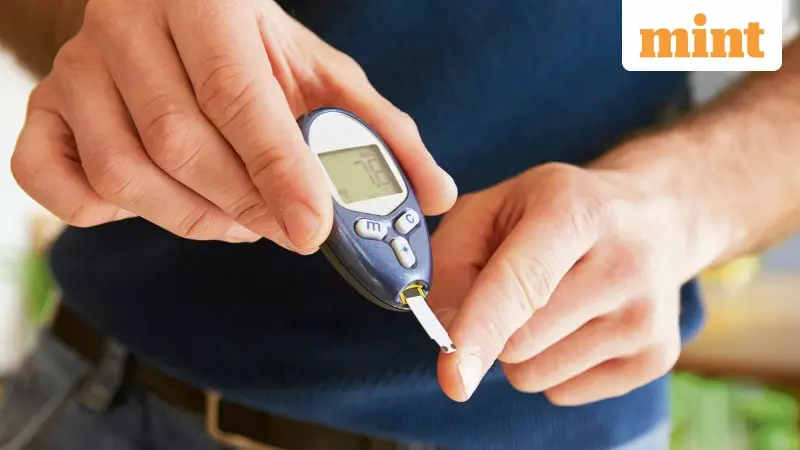
That irresistible urge to scroll through social media or binge-watch a series just before sleep is a common nightly ritual for millions. What feels like a harmless way to unwind, however, is secretly sabotaging your health, with emerging research pointing to a direct link between pre-sleep screen time and disrupted blood sugar levels.
The Blue Light Culprit Disrupting Your Sleep
The primary villain in this modern health dilemma is the blue light emitted from our smartphones, tablets, and laptops. This bright light plays havoc with our natural sleep-wake cycle by suppressing the production of a crucial hormone: melatonin. "Melatonin is a hormone that helps control our sleep cycle. When you use devices that emit blue light before bed, it confuses your brain into thinking it’s still day," explains Dr Shehla Shaikh, Consultant Endocrinologist at Saifee Hospital, Mumbai.
When melatonin levels don't rise as they should, your sleep quality plummets. This poor sleep doesn't just leave you feeling groggy; it has a direct impact on how your body manages insulin. Research highlighted by the National Institute of Diabetes and Digestive and Kidney Diseases confirms that insufficient sleep can lead to elevated blood sugar levels, making it harder for the body to regulate glucose effectively.
From Sleepless Nights to Serious Health Risks
The consequences extend beyond a single night of poor rest. A concerning study published in The Lancet Regional Health – Europe found that exposure to light at night can increase the risk of developing type 2 diabetes, regardless of how long you sleep. This occurs because the light disrupts your body's internal clock, keeping your nervous system in an alert state. This elevated alertness raises stress hormones, which in turn can lead to higher blood sugar.
Chronic sleep deprivation, often a direct result of excessive screen time, can lead to a more dangerous long-term condition: decreased sensitivity to insulin. "This insulin resistance can lead to serious health issues like obesity, diabetes, and polycystic ovarian syndrome (PCOS)," warns Dr Shaikh. For women, this may manifest as fertility and hormonal issues, while men might experience lowered testosterone and problems like erectile dysfunction.
How to Reclaim Your Sleep and Health
Fortunately, you can counter these effects and protect your well-being without completely abandoning your devices. Endocrinologists recommend a multi-pronged approach to improve sleep hygiene.
Limit screen time before bed: Make a conscious effort to power down all screens one to two hours before you plan to sleep. Use this time for calming activities like reading a physical book, meditating, or gentle stretching.
Activate blue light filters: Most modern devices have a 'night mode' or 'blue light filter' setting. Switch this on during the evening hours to reduce melatonin suppression.
Create a relaxing pre-sleep ritual: Signal to your body that it's time to wind down. Dim the lights, take a warm bath, practice deep breathing exercises, or journal to calm your mind.
Stick to a consistent sleep schedule: Going to bed and waking up at the same time every day, even on weekends, helps regulate your body's internal clock for more restorative sleep.
For those particularly concerned about their metabolic health, monitoring your blood sugar levels, especially at night, can provide valuable insights into how your lifestyle is affecting your body.
This article is for informational purposes only and is not a substitute for professional medical advice. Always consult your doctor for any health concerns or before making any changes to your routine.






